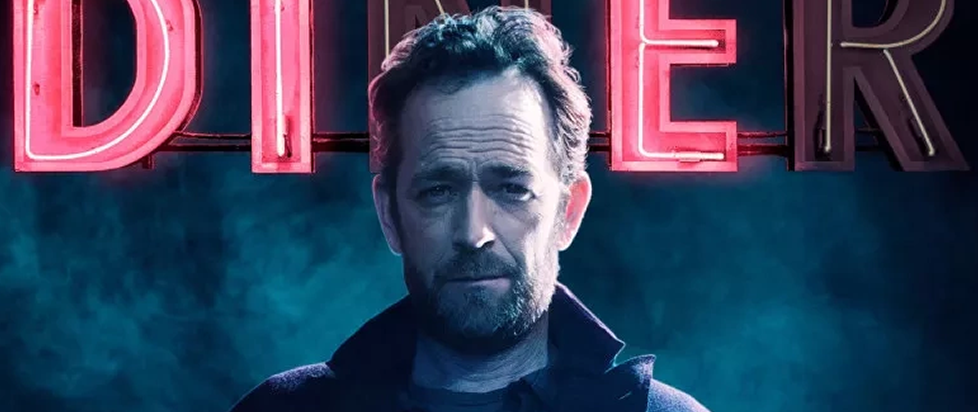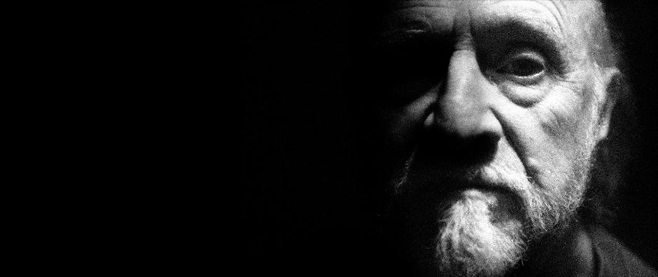
Luke Perry was Riverdale’s Best Idea
Luke Perry died on March 4th after suffering from a ischemic stroke days earlier. The actor was 52 years old, engaged, and a father of two. He was the star of the original 90210 and co-starred on Riverdale. Celebrity deaths are strange. I didn’t know Luke Perry. I’m not even what you’d call a real “fan.” I just liked him on Riverdale. So when I spent all day March 4th thinking about Luke Perry, something about it felt self-serving. Like I didn’t have the right to feel the way I did about it. Like I’m using him for something. Like something about his status as celebrity made it “alright” for me to use him. Celebrity deaths are strange.
Mourning celebrities tends to feel so disingenuous because it feels like I’m mourning the art itself and specifically my particular relationship with it, as much if not more than the artist. One of the first things I thought was “How will this affect Riverdale?” A father dies under terrible circumstances, and I’m worried about how it’ll affect some soap opera about horny teenagers? Why isn’t it enough that a person died before their time? Why is it that the fact that this person happened to be on a show I like the driving factor in why I feel aggrieved? Is my losing a part of fucking Riverdale “sadder” to me than learning about the end of a person’s life?
I end up asking questions like these whenever a celebrity whose work I’ve enjoyed dies. But something about Luke Perry’s death hits differently. Going back and re-watching Luke Perry in Riverdale helped me come to a conclusion I never thought I’d get to: I don’t know if it’s necessarily a bad thing that I mourn celebrities through their work the way I do. Luke Perry was Riverdale’s best idea. Losing him punches a huge hole in the show’s heart. It’s been easy to see–and feel–that absence in whatever Riverdale becomes, and even what it was. There’s another kind of art in that absence, an art that makes mourning feel legitimate, or even helpful.
The nature of Riverdale and Luke Perry’s role in it makes this absence particularly noticeable. Riverdale wants to be a very meta show. It wants you to know that it knows what it’s doing. Nowhere is this more clear than in the casting. Most of Riverdales infamous hot parents are TV or movie stars of yesterday… from shows that Riverdale rips off in the most self-conscious ways possible. Betty’s mom is Twin Peaks’ Mädchen Amick. Jughead’s dad is Scream alum and national treasure Skeet Ulrich. Archie’s mom is freaking Molly Ringwald. Obviously, Luke Perry himself is the teen throb of 90210.
These casting choices are a cute gimmick, but they also legitimately reflect the themes Riverdale takes aim at. The parents tend to get almost as much screen time as the “teen” cast, and they each have their own subplots, character arcs, and (of course) tawdry, complex love affairs. Luke Perry as Archie’s dad Fred Andrews is at the center of Riverdale’s interest in the interior lives of parents, and his performance probably sells the shows central conceit better than any of its other elements.
Riverdale is at its best when it’s making the point that, really, its parents don’t know any better than their kids. Luke Perry’s performance as Fred Andrews embodies that idea. Fred is trying to be a good person the best way he knows how… but he doesn’t seem to know how very well. Perry plays his attempts to be a good man and parent seem as awkwardly put-on as they are painfully earnest. He’s a man who, for all his years, isn’t really much smarter than his son (and it can’t be stressed enough how dumb Archie is). Perry makes Fred sympathetic even when he’s at his most short-sighted and petty, because we can see that Fred is, at his heart, afraid he’s missing something he’s supposed to have. It works because Luke Perry is there, making it work.
At least, he was. Now, the role and the show will always also be saying something else. It’s impossible to see Riverdale the same way without Perry. The story of Fred Andrews is, thanks to Riverdale’s framing, in some small part the story of Luke Perry. No one else can tell that story, and its ending must necessarily change how we think about it. Any time someone watches Riverdale now, they won’t just be thinking about growing up, weird war on terror metaphors, or the fact that this show honestly has a drug called “jingle jangle.” They’ll also be thinking about how losing someone changes everything they were a part of, forever. There’s something beautiful there, and something worth mourning about. Riverdale won’t be the same without Luke Perry, and neither will we.




